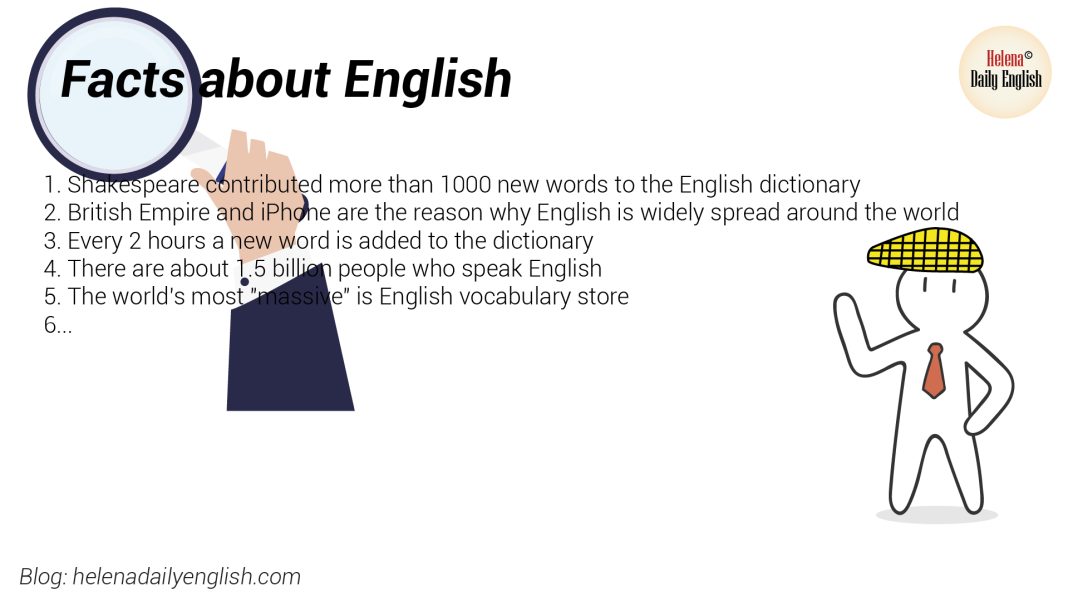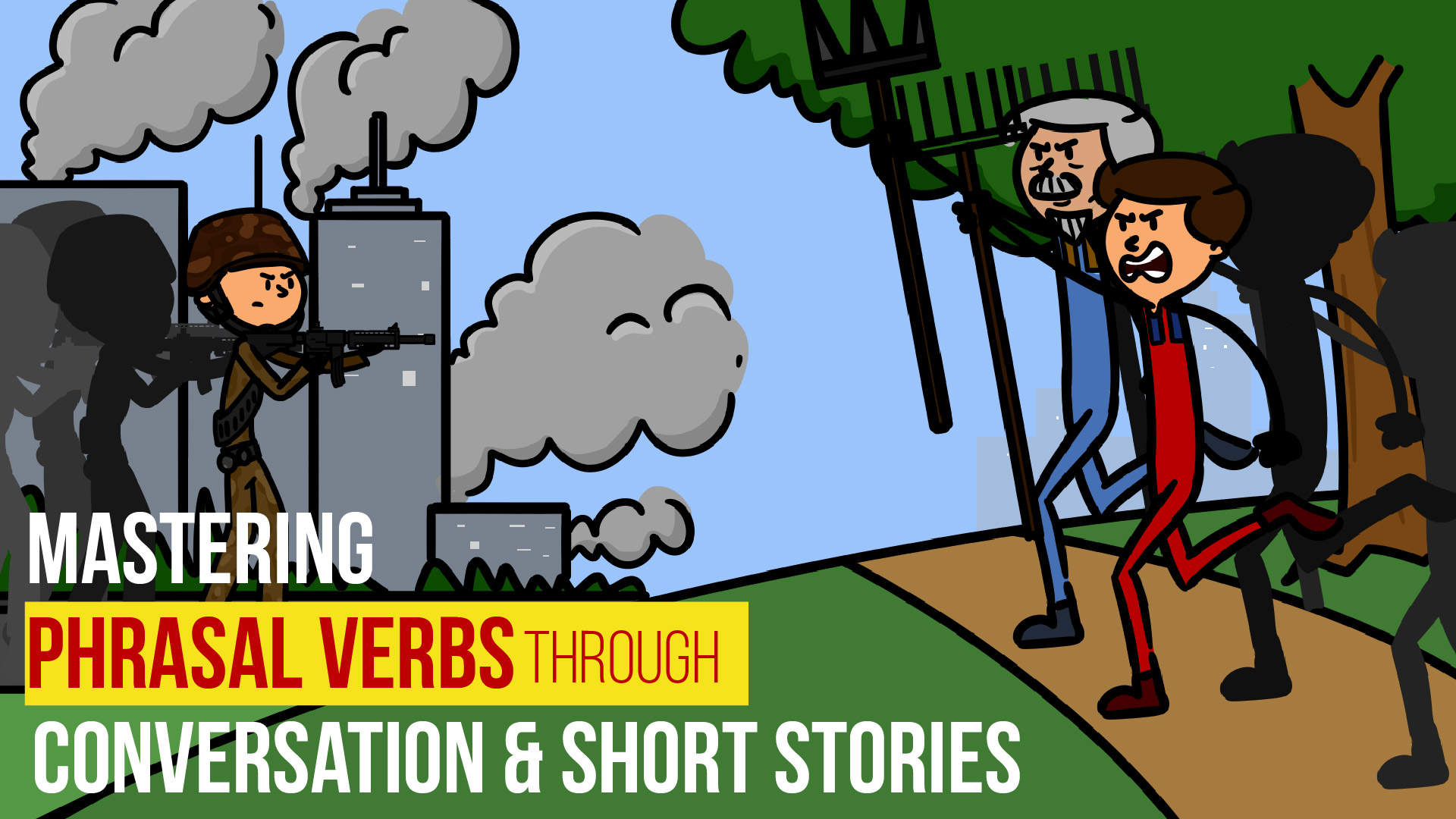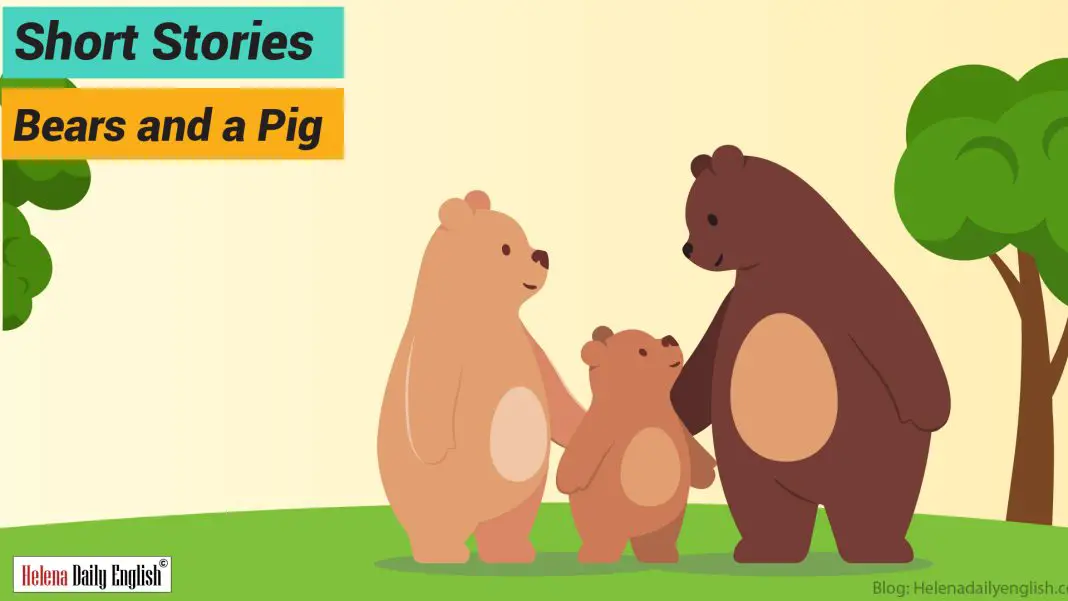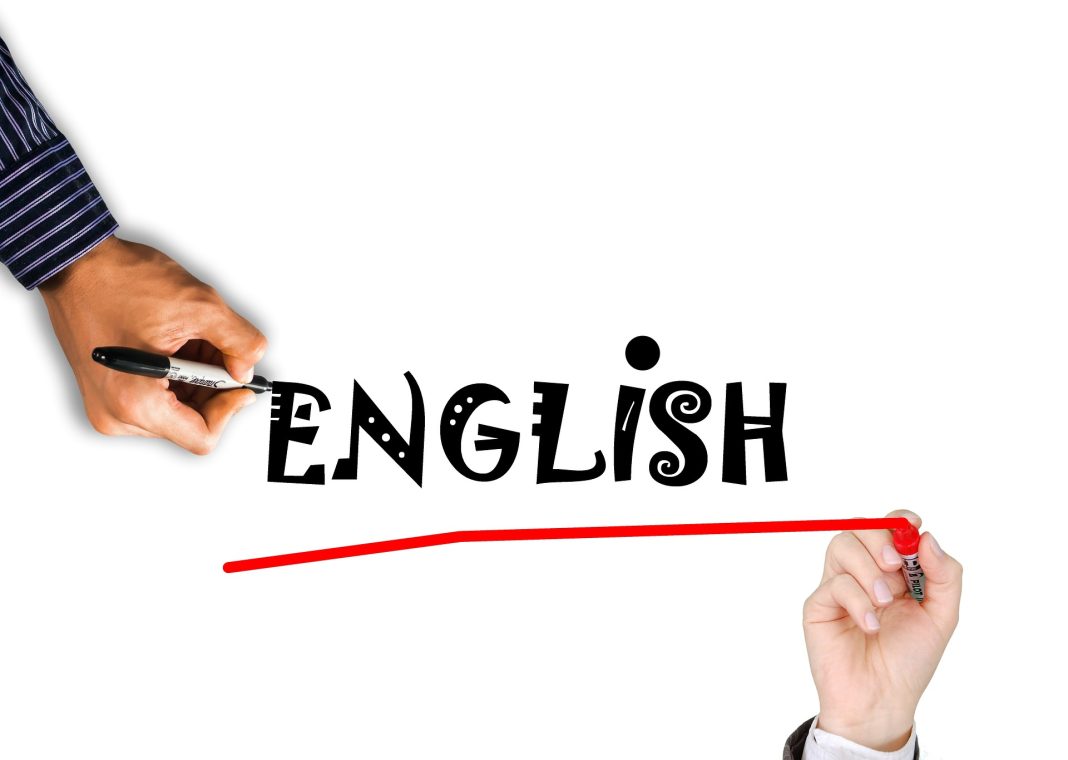Facts about English
Hi everyone,
This lesson is about English, but not about how you can improve your English. No, I have made some. I give you some interesting facts about English, which may surprise you. While you read my lesson, you can practice your listening, and also, you can know more about the language you are learning. So, you may get surprised a lot, so let’s get started.
1. Shakespeare contributed more than 1000 new words to the English dictionary
There will be a lot of you who feel “hate” the writer William Shakespeare because he “accidentally” made learning vocabulary much more difficult. More than 1000 words he created and used in famous works are still used by people every day and saved in official dictionaries.
Some common words and phrases:
- Addiction: Being psychologically or physically dependent on something, usually a drug.
- Bedazzled: Blinded by something incredibly wonderful.
- Cold-blooded: Either an animal with cold blood (like a reptile) or a way to describe someone who’s cruel and indifferent to emotion.
- Swagger: To walk in a way that shows you’re boasting or disrespectful.
- Break the ice: To relieve the tension or silence in a conversation by talking.
2. British Empire and iPhone are the reason why English is widely spread around the world
Everyone knows that English is the most common language, but do you know the reason behind that story?
- Reason 1: From the late 15th century to the 17th century and the 1960s, Britain owned many colonies, stretching from Europe and North America to the countries of Africa and the West Indies. Of course, once you own a country, gradually the people of the colonized countries will have to learn English.
- Reason 2: The rise of the great power of the United States and the popularity of the Internet and the iPhone have made English available to almost every corner of the world.
3. Every 2 hours a new word is added to the dictionary
The curator of the Oxford English Dictionary once shared that there are about 4000 new English words a year, that is, every 2 hours there will be a new word.
4. There are about 1.5 billion people who speak English
It is estimated that about 20% of the world’s population knows and is using English, of which there are about 600-700 million foreigners.
5. The world’s most “massive” is English vocabulary store
As of 2019, the number of words one can count is 1 MILLION words. Sounds terrible, doesn’t it? But don’t be afraid, because…
6. On average, an English speaker only knows 20,000 – 30,000 words
You do not need to memorize all the other 1 million words, because statistics have shown that a person can only remember 20,000 – 30,000 English words and only need that to be able to communicate well.
7. “E” is the most used letter
And the least used letter is “Q”
8. The most used adjective is “good”
Good job, Good morning, Good evening, Very good,… are the catchphrases of English learners. Not surprisingly, good is the most used adjective.
9. The most used noun is “time”
Accredited by the Oxford English Dictionary
10. 2 English words can be combined into one
A portmanteau is a mixture of pronunciations of two different English words to create a new word that combines their meanings.
For example:
- Hangry = hungry + angry: both hungry and angry
- Brunch = breakfast + lunch: the meal between breakfast and lunch.
11. A sentence that contains the whole alphabet
The word “Pangram” refers to a sentence that contains all the letters of the alphabet.
A very famous example of Pangram: “The quick brown fox jumps over a lazy dog.” Check it out.
12. What does Palindrome mean?
This is a word that represents a word or phrase with syllables that are symmetrical, that is, if the position is reversed, it remains the same.
Example: madam
13. Most English vocabulary comes from French and Old English
After the Norman Conquest in 1066, French became the language of the nobility in England. Meanwhile, the lower classes continued to use Old English, which was made up of German. After many years, both languages continued to interfere with each other to form English as it is today.
For example:
Commence and Begin both mean to begin. Where Commence is derived from the French word Commencer (meaning: begin) and is used in formal occasions.
The marketing team commenced work on the project
Begin is the Old English word, derived from the German word Beginnan, which also means to begin.
15. America has no national language
There is an obvious fact that few people notice, that is, the great power America has no national language. Many people assume that the official language of the United States is English, which is a misconception. Because the United States of America has a lot of people from all over the world coming to work, there will be a lot of foreign languages intermingled.





